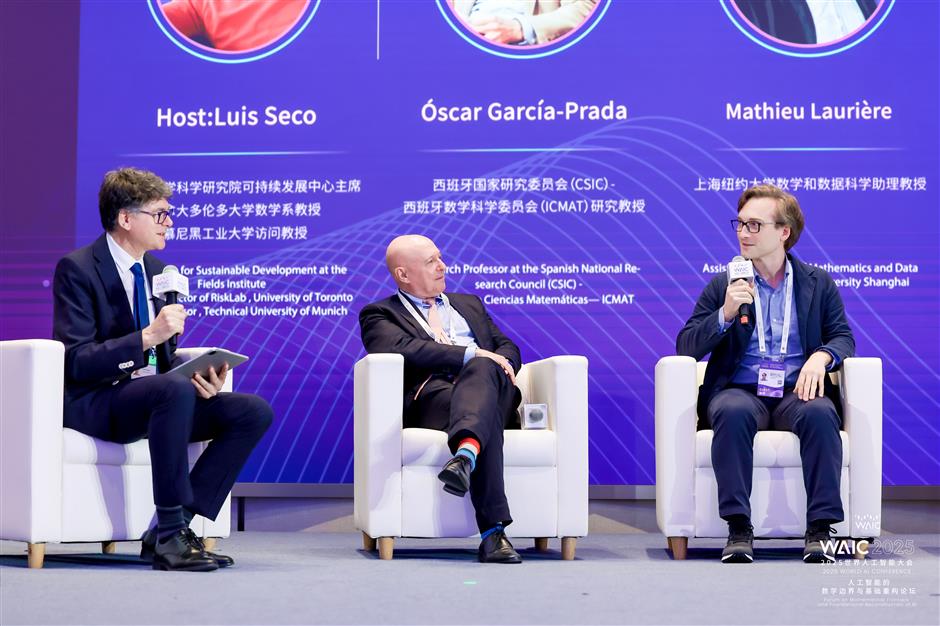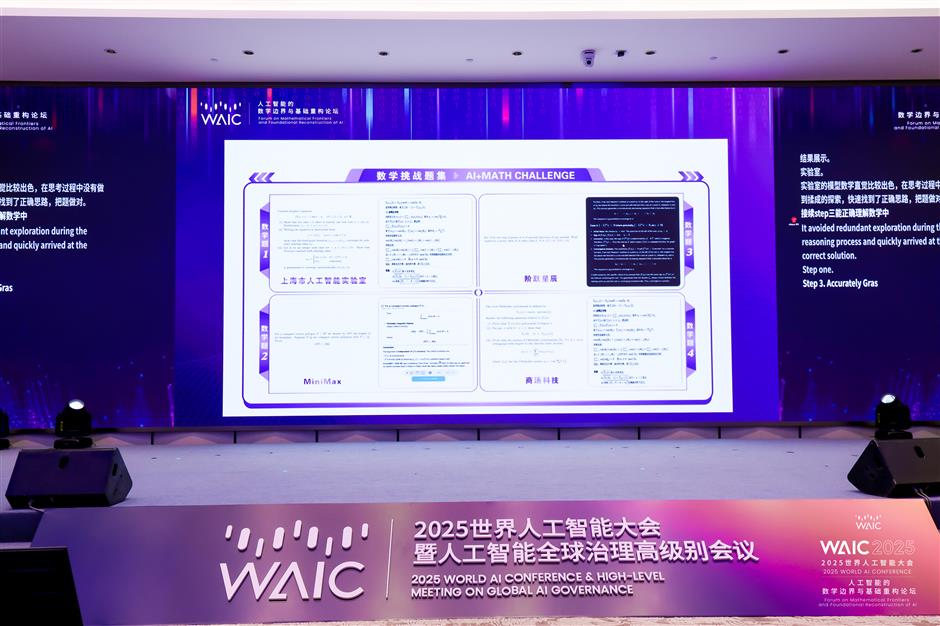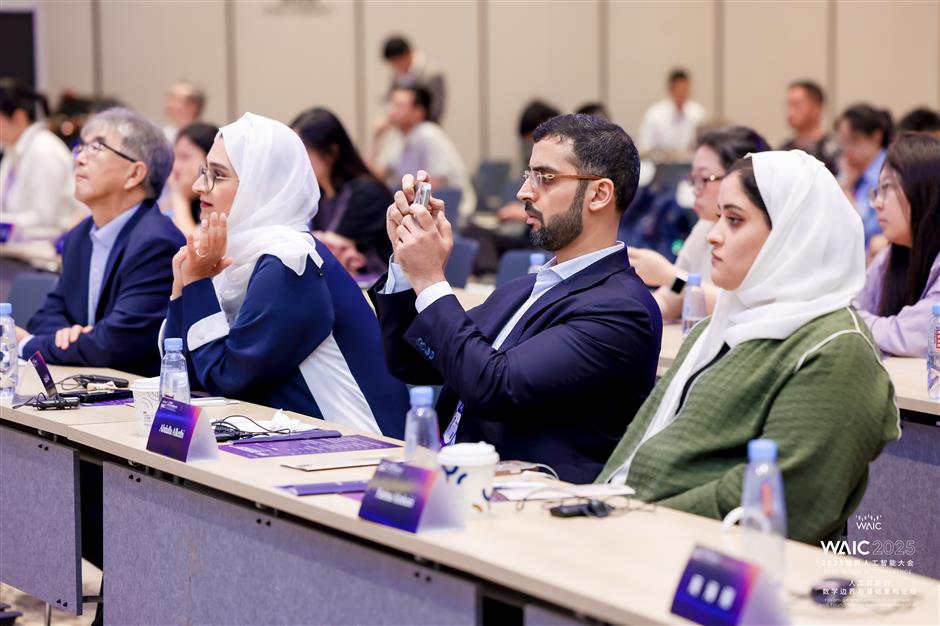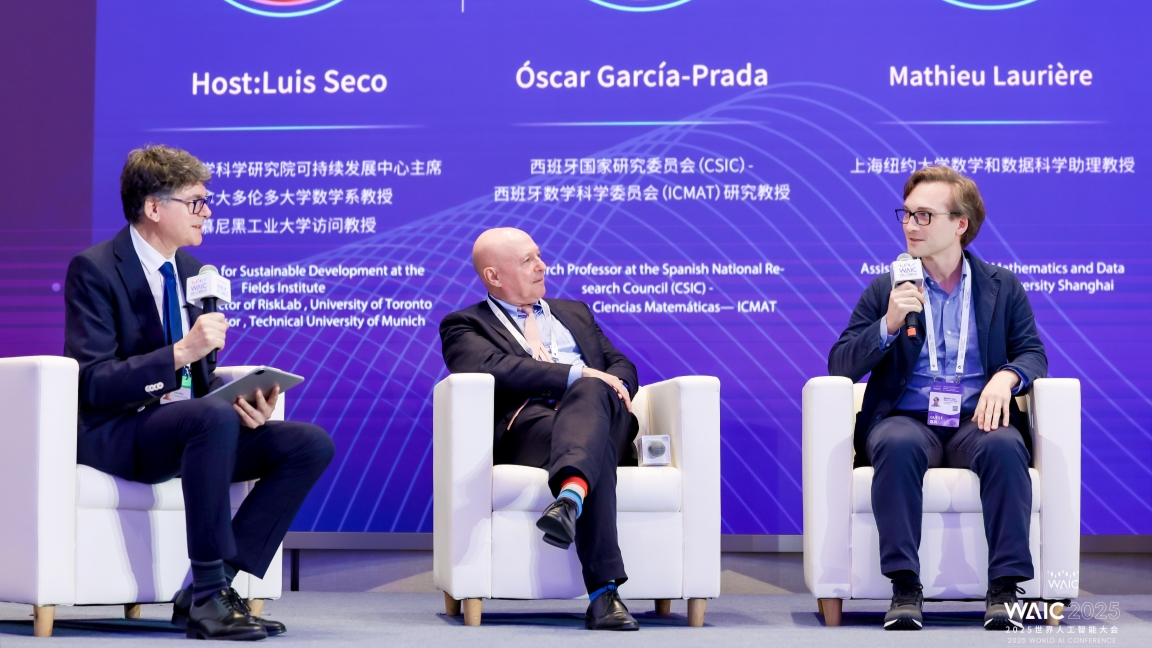

Leading experts take part in a panel discussion on the intersection of artificial intelligence and mathematics during the WAIC 2025.
Four Shanghai-based AI models simultaneously tackled math problems designed by Fields Medalist Shing-Tung Yau at the 2025 World Artificial Intelligence Conference on Saturday.
Their real-time solutions were projected on a large screen, showing how each system, developed by leading labs including Shanghai AI Lab, SenseTime, StepFunAI, and MiniMax, processed complex reasoning step by step.
The challenge was a centerpiece of the Forum on Mathematical Frontiers and Foundational Reconstructions of AI.
Each model solved the same problem in different ways. The Shanghai AI Lab model quickly found the right approach without extra steps.
StepFun identified key mathematical structures and checked their accuracy. MiniMax added follow-up answers after solving the main question. SenseTime used step-by-step proofs with formulas and substitutions.
Organizers said the exercise highlighted the potential and current limitations of AI in symbolic reasoning.

The problem-solving processes of four Shanghai-based AI models for questions designed by leading mathematicians.
The forum also marked the opening of two new research labs in Shanghai's Putuo District.
The Fefferman Lab, led by Professor Diego Córdoba, will study singularities in fluid dynamics equations.
The Hitchin–Ngo Lab will focus on algebraic geometry and mathematical physics. Both labs are affiliated with the Spanish Institute for Mathematical Sciences.
In addition, Feishu China, established in Haina Town Digital Innovation Hub in Putuo District, is expected to promote international collaboration and support interdisciplinary research.
Experts at the forum pointed to the growing interaction between AI and mathematics. As AI models expand in scale, researchers face challenges in optimization, model safety, and explainability – areas where mathematical theories are increasingly needed.
"Artificial intelligence is everywhere," said Luis Seco, chair of the Fields Institute Centre for Sustainable Development. "We're using it constantly. But it is built on centuries of mathematical research. Future AI progress depends on future mathematical advances."

Experts and mathematicians from across the world attend the forum about AI and mathematics.
David Ríos Insua, a member of the Royal Academy of Sciences in Spain, said AI is also producing new problems for mathematics.
"This is a two-way relationship," he said. "AI needs math, and math benefits from the questions AI brings."
The Putuo District government described the new research hubs as part of its broader strategy to link global science resources with local innovation.
"Feishu China supports our efforts to attract talent and create a world-class science platform," said Li Wenbo, director of the district's science commission.
Organizers also released a list of unsolved problems at the AI-math intersection. The list, compiled by teams including those led by Yau and academician Xu Zongben, will serve as a research focus for future work by both human and machine learners.

